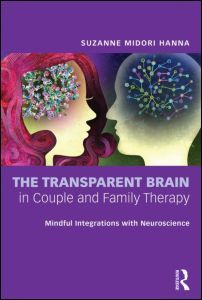Description
The Transparent Brain in Couple and Family Therapy
Mindful Integrations with Neuroscience
Author: Hanna Suzanne Midori
Language: English
Subject for The Transparent Brain in Couple and Family Therapy:
Keywords
Family Therapy; Emotionally Focused Couple Therapy; The Transparent Brain; Rst Century; Brain; Family Therapists; Biology; Transparent Brain; Human development; Systemic Empathy; Neurophysiology; Unspeakable Dilemma; Therapy; Trauma Symptoms; Trauma; Animal Kingdom; Aft Er Birth; Marriage; Explicit Memory; Love; fi Ve Senses; Sex; Heart Rate Variability; Tribe; Implicit Memory; Neurobiology; VTA; Community; Young Man; Program Development; Ve Senses; Berkman-Syme Social Network Index; Multifamily Psychoeducational Groups; Checkli
Approximative price 53.83 €
In Print (Delivery period: 14 days).
Add to cartPublication date: 08-2013
Support: Print on demand
Approximative price 196.56 €
In Print (Delivery period: 14 days).
Add to cartPublication date: 09-2013
Support: Print on demand
Description
/li>Contents
/li>Readership
/li>Biography
/li>
Why should family therapists care about brain research? Are there invisible connections between the breakdown of our relationships and the breakdown of our cells? To answer these questions, author Suzanne Hanna paints pictures of ancient principles coming together with contemporary research as a context for why basic concepts of neuroscience are relevant to couple and family therapy. She illustrates the reciprocal nature of the body and relationships in a book that simplifies and demystifies brain science for therapists. Using the latest findings from affective and cognitive neuroscience, she highlights 6 brain-friendly family therapy approaches and introduces the concept of biological empathy. This analysis enables practitioners to harness the power of mindfulness toward brain development and interpersonal healing. Client-friendly language allows busy therapists to educate without jargon. Applications of family therapy begin with the self of the therapist and advance through the interpersonal layers of attachment, pair-bonding, and community. Chapters include topics on:
? Whole body awareness
? A narrative approach to neuroanatomy and physiology
? 5 basic principles of neuroscience
? Basics of trauma treatment
? Male/female brain differences in couples therapy
? The ancient concept of tribe and a community frontal lobe
Each chapter summarizes with principles and guidelines for clinicians. Numerous illustrations make the brain transparent, while surveys, worksheets, and tables make therapeutic process transparent. The last chapter illustrates concepts and interventions through a full-length case story and applies addiction treatment as a case study for program development. The Transparent Brain includes case examples from all walks of life, highlighting heroic acts of survival. Clinicians can use 5 basic principles of neuroscience to bring relief more quickly, for more people from more diverse backgrounds. It is a revolutionary read and a must-have reference for any mental health professional.
Suzanne Midori Hanna, PhD, is a marriage and family therapist with over 30 years’ experience as a clinician, educator, and program developer. She is a Clinical Member and Approved Supervisor of the American Association for Marriage and Family Therapy. She has been a faculty member, program director, and program developer for three COAMFTE-accredited programs in Wisconsin, Kentucky, and California. Her specialization in integrative family trauma treatment is the result of 20 years working with African Americans in Kentucky and California. She has authored The Practice of Family Therapy and co-edited with T. Hargrave The Aging Family. Her practice includes family therapy, consultation, training, and evaluation to nonprofit organizations who serve veterans and disadvantaged trauma survivors. She is also an instructor for Amridge University and a senior scholar for the Hiebert Institute.




